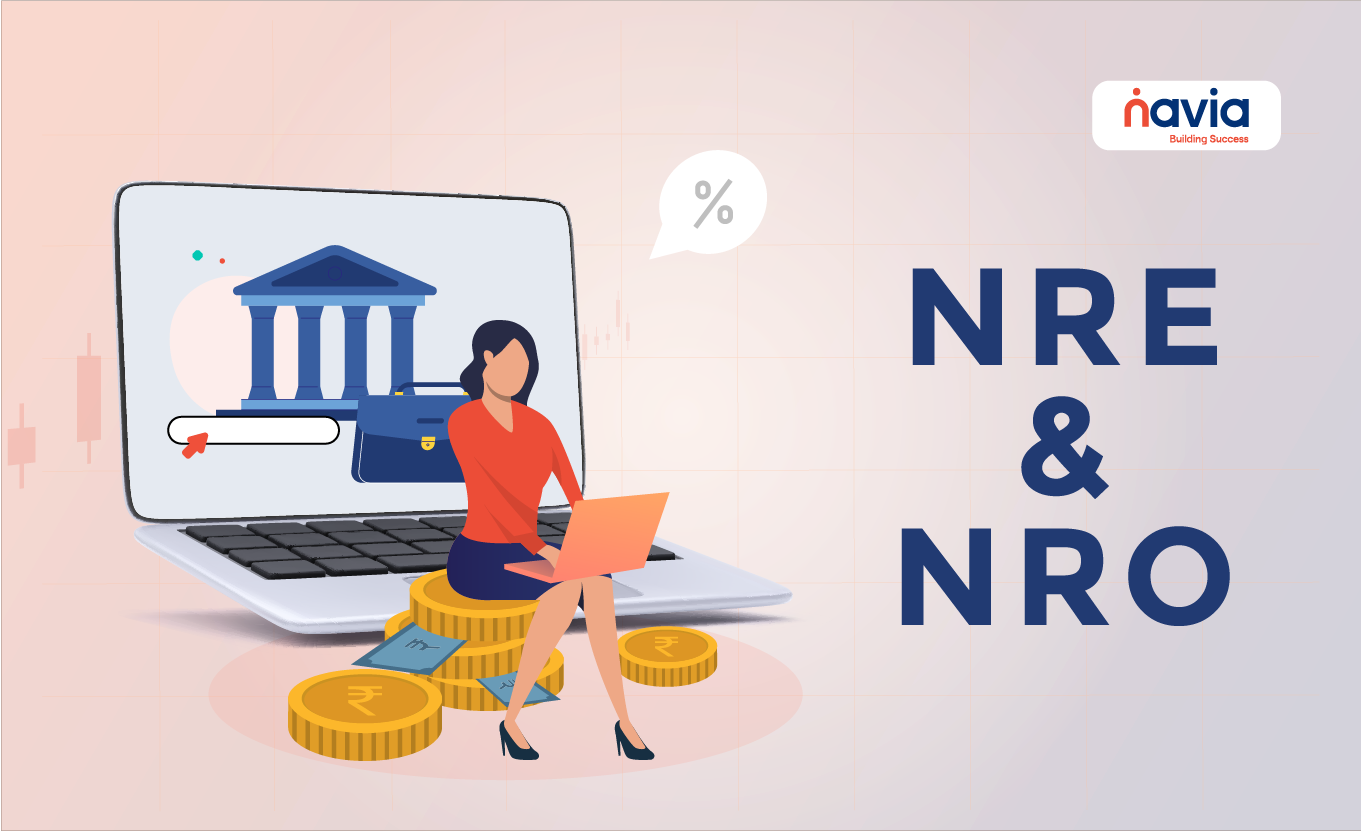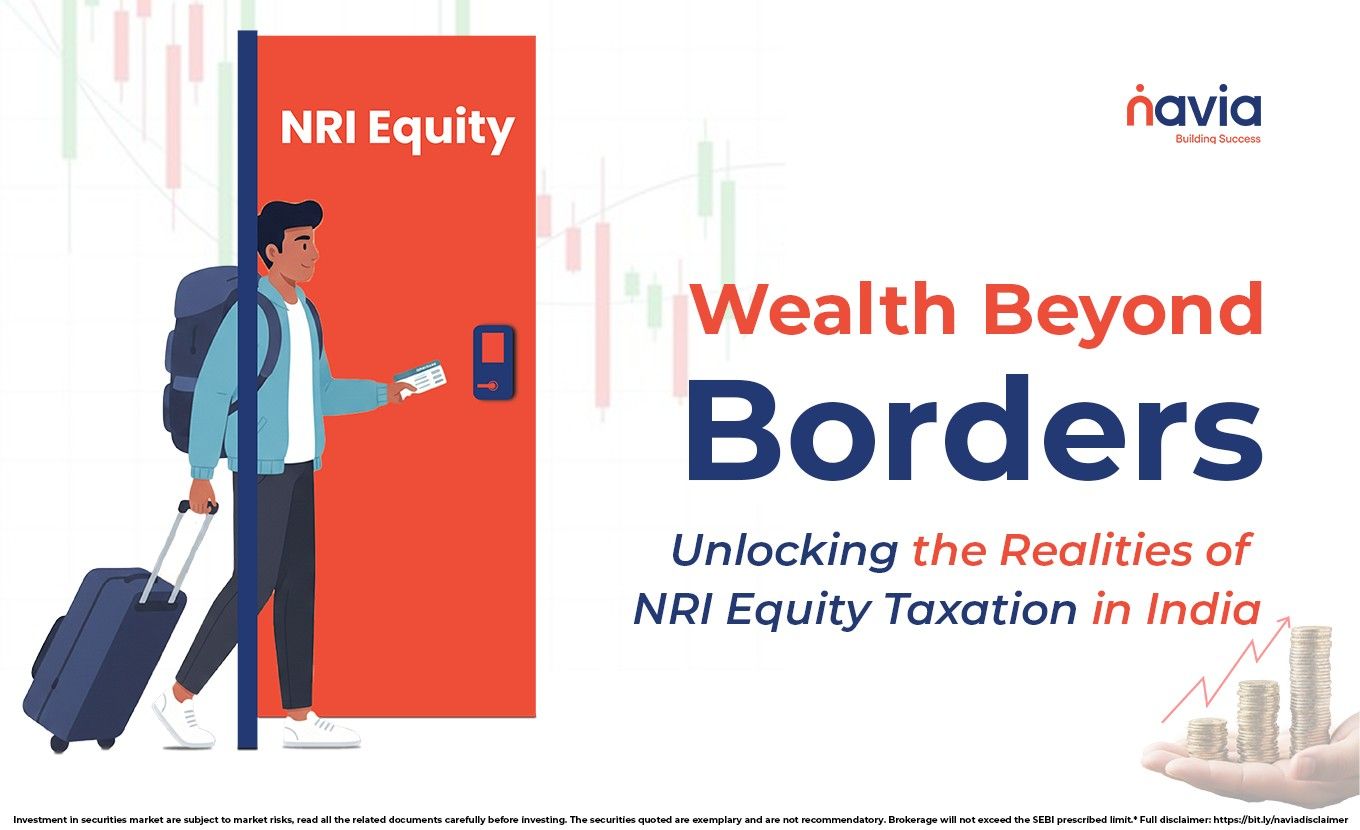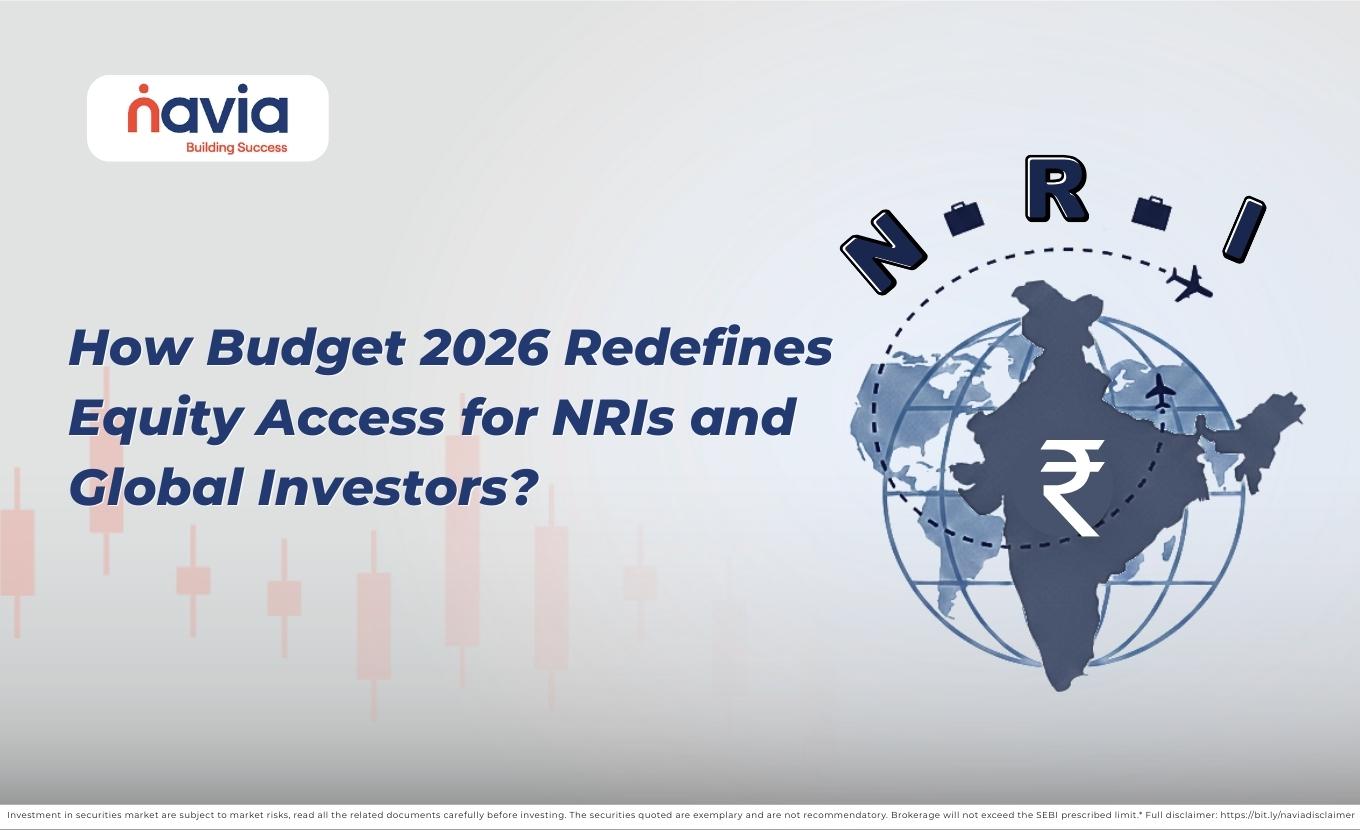Understanding NRO and NRE Demat and Trading Account

As an NRI (Non-Resident Indian), managing your finances in India can be streamlined by opening the right type of bank and demat accounts. Two of the most common accounts available to NRIs are the NRE (Non-Resident External) and NRO (Non-Resident Ordinary) accounts. These accounts serve different purposes and have distinct features that you should be aware of before making a choice.
What is an NRE Account?
An NRE account is designed to help NRIs manage their foreign earnings in India. The money deposited in this account must be earned outside India. It allows for repatriation of funds—meaning you can transfer the funds back to your country of residence. The principal and interest earned on NRE accounts are exempt from Indian income tax.
What is an NRO Account?
An NRO account is meant for managing income earned in India, such as rent, dividends, or pension. The funds in this account cannot be freely repatriated—only up to a certain limit, after paying applicable taxes. The interest earned on NRO accounts is subject to Indian income tax.
The Differences Between NRE and NRO Bank Accounts
| FEATURE | NRE ACCOUNT | NRO ACCOUNT |
|---|---|---|
| Purpose | Manage foreign income | Manage income earned in India |
| Currency | Indian Rupees (₹) | Indian Rupees (₹) |
| Taxation | Interest is tax-free | Interest is taxable |
| Repatriation | Freely repatriable (principal and interest) | Restricted repatriation (up to USD 1 million) |
| Joint Account | Can be held with another NRI | Can be held with NRI or Indian resident |
| Deposits | Only foreign income can be deposited | Both Indian and foreign income can be deposited |
| Account Operation | Can be operated by the NRI | Can be operated by the NRI or a Power of Attorney holder |
| Interest Rate | Generally lower compared to NRO | Generally higher than NRE |
The Differences Between NRE and NRO Demat Accounts
NRE (Non-Resident External) and NRO (Non-Resident Ordinary) demat accounts are essential for NRIs who wish to invest in Indian securities. Although both accounts facilitate investment in Indian markets, they have distinct features that cater to different financial needs. Below is a comprehensive comparison of the two:
| FEATURE | NRE ACCOUNT | NRO ACCOUNT |
|---|---|---|
| Purpose | Investment in Indian securities using foreign income | Investment in Indian securities using Indian income |
| Repatriation | Freely repatriable (principal and interest) | Repatriation restricted; funds can be repatriated up to USD 1 million per financial year, subject to tax compliance |
| Income Source | Funds must be sourced from NRE or FCNR accounts | Funds must be sourced from NRO account |
| Taxation | Gains are subject to Indian taxation (TDS applies) | Gains are subject to Indian taxation (TDS applies) |
| Currency Risk | Low—investments are made in INR but sourced from foreign currency, ensuring easy repatriation | Higher—investments are made in INR, and repatriation is limited, possibly exposing the investor to currency risk |
| Trading Restrictions | Restricted to purchase and sale of shares on a repatriation basis only; PIS (Portfolio Investment Scheme) account required | Allows purchase and sale of shares on a non-repatriation basis; PIS is optional |
| Portfolio Investment Scheme (PIS) | Mandatory for buying and selling shares in the secondary market | Optional—shares can be bought and sold without PIS. |
| Joint Holding | Can be held jointly with another NRI | Can be held jointly with another NRI or a resident Indian |
| Compliance | Stringent—adherence to FEMA (Foreign Exchange Management Act) guidelines required | Less stringent—compliance with FEMA required, but fewer restrictions than NRE demat accounts |
| Reporting of Transactions | All Equity transactions will be reported to Bank. | Transactions will not be reported to Bank |
| Fund Transfer | PIS needs to be funded. Fund transfers are directly done by the bank based on the contract notes generated | Funds can be transferred online by clients using Payment Gateway |
| Tax deduction at Source (TDS) | TDS will be deducted by Bank for which they charge | TDS will be deducted by Navia at 0 cost |
| Eligible Segments | Equity Cash | Equity Cash and Derivatives / F&O Trading |
| Funds | Funds should be available in advance before placing orders | a) Can keep the account funded or b) Can use stock collateral to buy stocks and pay later |
| Leverage | No leverage will be provided | Leverage will be provided like resident accounts. Read More |
| Margin Trading Funding (MTF) | No funding can be availed | Funding is available. MTF can be enabled online instantly |
| Intra Day Trading | Strictly not allowed | Can trade Intra Day and do BTST (Buy Today Sell Tomorrow) |
Additional Considerations:
🔸 Trading Flexibility: While NRE demat accounts are restricted to repatriable transactions, the NRO demat account offers more flexibility, as it can hold both repatriable and non-repatriable investments. This allows NRIs to manage their India-based income more effectively.
🔸 Dividend and Interest Income: For NRE demat accounts, dividends and interest earned on investments are credited directly to the NRE account and can be repatriated without restrictions. For NRO demat accounts, these earnings are credited to the NRO account and are subject to tax deduction at source (TDS) in India.
🔸 Power of Attorney (POA): Both NRE and NRO demat accounts can be operated through a Power of Attorney holder in India, providing NRIs with the convenience of managing their investments without being physically present in the country.
Why Choose Navia for Your NRI Investing and Trading Needs?
When it comes to investing and trading as an NRI, Navia offers an unparalleled experience, combining the lowest costs with maximum convenience. Here’s why Navia stands out:
🔹 Competitive Pricing: Navia provides one of the most cost-effective platforms for NRIs, ensuring that you can maximize your returns without worrying about hefty fees. With transparent and straightforward pricing, there are no hidden charges—just clear, competitive rates that keep more of your money working for you.
🔹 Comprehensive Account Offerings: Whether you need an NRE or NRO demat account, Navia has you covered. Our platform allows you to easily manage your investments, regardless of whether your funds originate from abroad or within India. With tailored solutions to meet your specific financial needs, Navia ensures that your investment strategy is aligned with your goals.
🔹 Ease of Access and Convenience: With Navia, managing your investments has never been easier. Our state-of-the-art platform is designed with user-friendliness in mind, offering intuitive navigation and a seamless trading experience. Whether you’re trading equities, mutual funds, or bonds, you can do so effortlessly from anywhere in the world.
🔹 Exceptional Support for NRIs: At Navia, we understand the unique challenges faced by NRIs. That’s why we offer dedicated support to help you navigate the complexities of NRI investing. Our customer service team is always ready to assist you, ensuring that your queries are resolved quickly and efficiently.
🔹 Reputation and Trust: With over 25 years of experience serving NRIs, Navia has built a reputation for reliability and trustworthiness. We prioritize your financial security and provide a safe, regulated environment for all your investments.
Choosing Navia means opting for a partner who is as committed to your financial success as you are. Experience the difference with Navia and take your NRI investing to the next level.
For more details, visit Navia’s NRI Demat Account Page.

Managing your finances from abroad can be tricky, but what if there was an app that made it easy? Watch our video to discover how the Navia app simplifies NRI financial management!
Conclusion
Choosing between an NRE and NRO demat account depends largely on your source of income and your need for repatriation flexibility. If your investments in India are funded by foreign income and you prioritize ease of repatriation, an NRE demat account may be the better choice. However, if you have income generated within India that you wish to invest, or if you require more flexibility in managing repatriable and non-repatriable funds, an NRO demat account might suit your needs better.
DISCLAIMER: Investments in the securities market are subject to market risks, read all the related documents carefully before investing. The securities quoted are exemplary and are not recommendatory. Brokerage will not exceed the SEBI prescribed limit.
We’d Love to Hear from you





